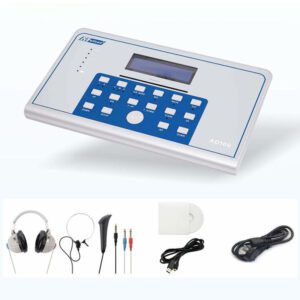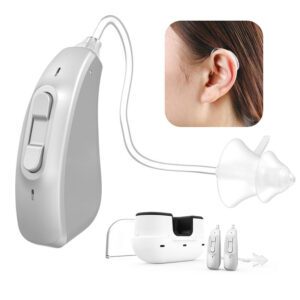For many people with hearing Loss, a hearing aid is more than a medical device—it’s a daily companion that helps them reconnect with loved ones and the world around them. Naturally, one of the most common questions users ask is: How long do hearing Aids last?

Average Lifespan of Hearing Aids
On average, most hearing aids last between 3 to 7 years. The exact number depends on several factors, such as the type of device, the materials used, and how well the user takes care of it. For instance, behind-the-ear (BTE) hearing aids tend to be more durable, while smaller completely-in-canal (CIC) models may wear out faster due to exposure to moisture and earwax.
From my own observation, I have seen clients who have used their hearing aids for over 8 years. While they still worked, performance and sound clarity had noticeably declined, which eventually led them to upgrade.

Factors That Influence Lifespan
Several key elements determine how long a hearing aid can serve you effectively:
Usage environment – High humidity, sweat, or dusty surroundings can shorten the lifespan.
Electronic components – Microphones and receivers wear out over time.
Batteries and accessories – Regular replacement of ear domes, wax guards, and tubing is essential.
Maintenance habits – Proper care makes a huge difference.
How to Extend the Life of Your Hearing Aids
The good News is that proper care can significantly extend the life of your hearing aid. Here are some practical tips:
Clean your hearing aids daily with a soft, dry cloth.
Use a drying kit or electronic dryer overnight to protect against moisture.
Keep devices away from heat sources and avoid wearing them in the shower or swimming.
Schedule routine check-ups with your hearing care provider for adjustments and professional cleaning.
Personally, I’ve noticed that users who follow a consistent cleaning routine often enjoy more years of reliable service from their devices compared to those who don’t.
When to Consider Replacing Hearing Aids
Even with excellent care, no hearing aid lasts forever. You may need to replace yours if:
Your hearing loss has progressed, and you need more powerful amplification.
Your device requires frequent repairs, or the cost of maintenance is too high.
Sound quality and clarity have declined.
You wish to upgrade to newer features such as Bluetooth connectivity or rechargeable batteries.
Final Thoughts
A hearing aid is a valuable investment in your quality of life. With proper maintenance, you can maximize its lifespan and enjoy consistent performance. At the same time, it’s important to recognize when it’s time to upgrade for better sound, comfort, and features.
At Spieth Hearing Solutions, we not only provide high-quality hearing aids but also professional guidance on maintenance and timely replacement. Our goal is to help every user enjoy clear sound and reliable support for as long as possible.


